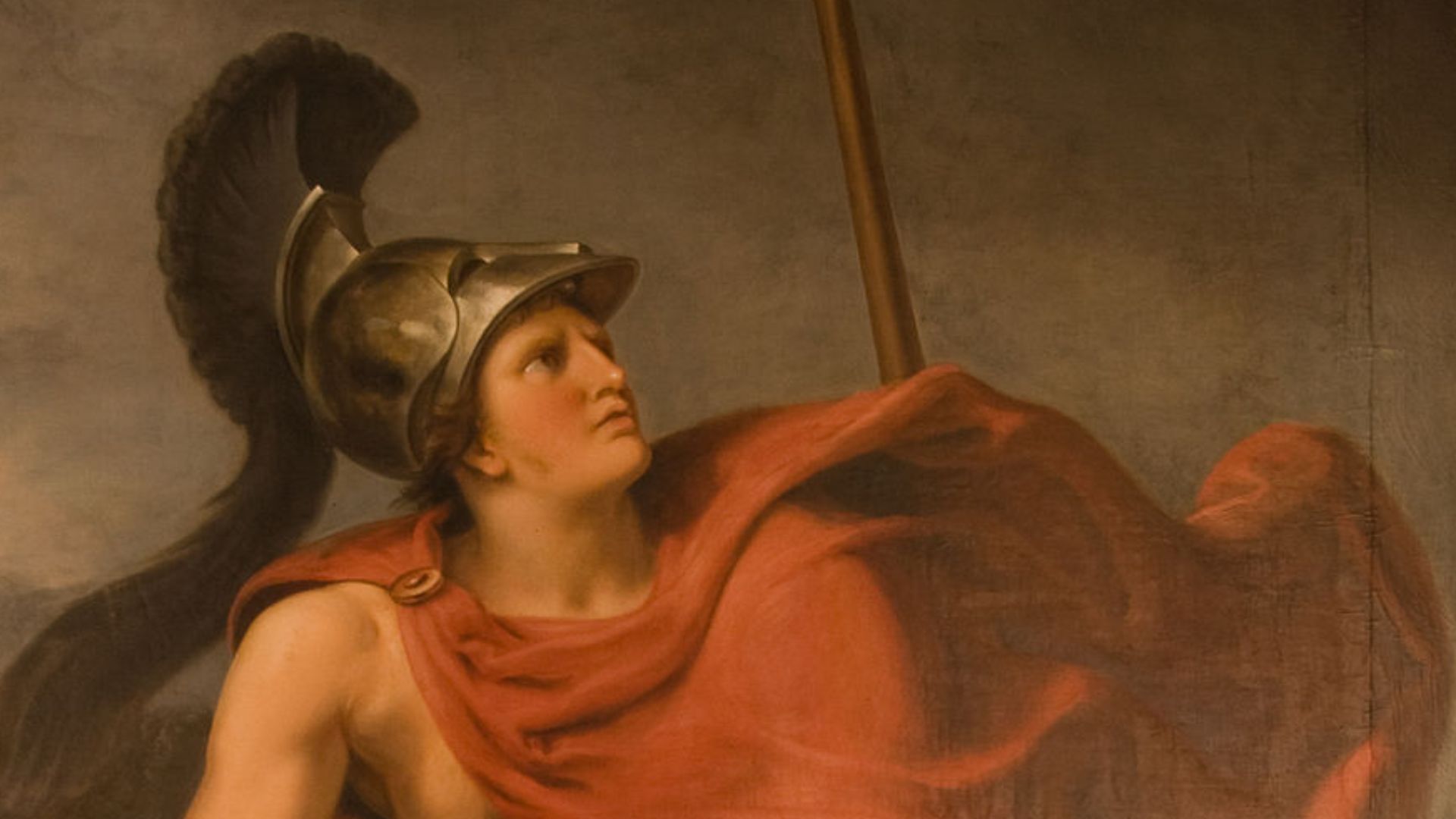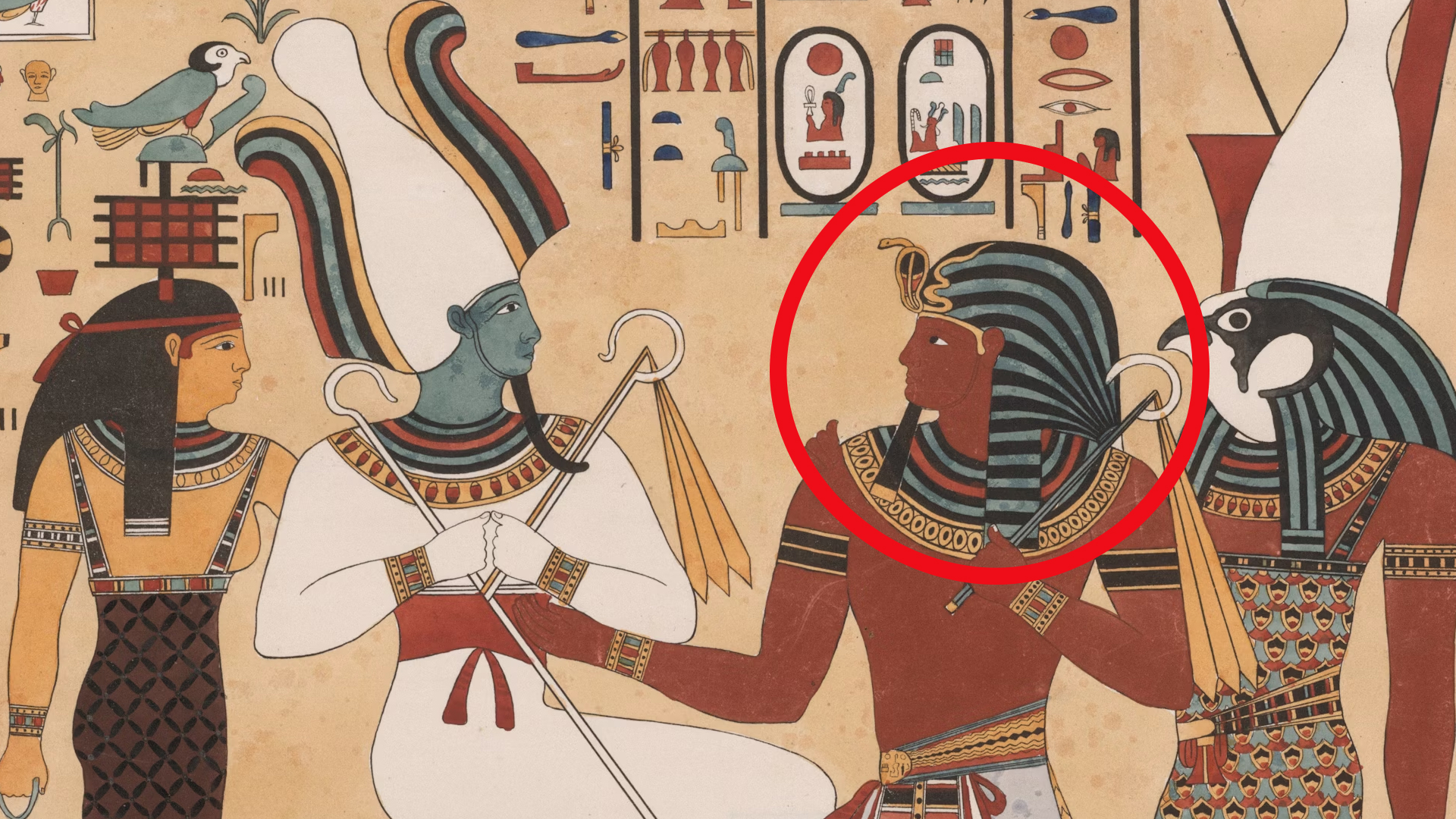Women Who Have Stood the Test of Time
In Ancient Greece, women rarely took part in the political or social spheres. Their livelihood relied on men and their familial lineage. But a few women, mythological or historical, took a stand against this patriarchal regime, and were so well-known that the historians decided to include them.
1. Agnodice
Seen more as a mythological figure, Agnodice represented the first female midwife and physician in the Ancient Greek world. As women were not permitted to be physicians, Agnodice disguised herself as a man, and her skills in the profession made her popular among the women of Athens.
 Unknown authorUnknown author on Wikimedia
Unknown authorUnknown author on Wikimedia
2. Anyte
Anyte of Tegea was a famous poet who lived around 300 BCE. While there isn’t much written about her life, she has 24 epigrams - brief statements - attributed to her in the Greek Anthology, a preserved collection of poems.
 Lucien Lévy-Dhurmer on Wikimedia
Lucien Lévy-Dhurmer on Wikimedia
3. Arete of Cyrene
Born in Libya, Arete was the daughter of Aristippus. Her father studied under Socrates, who passed his philosophical teachings to Arete. When her father died, Arete took over teaching students at the School of Cyrene and became a highly esteemed philosopher.
4. Aspasia of Miletus
Considered one of the most important women in the Ancient Greek world, not much is known about her personal life. Allegedly, she worked as a courtesan (an old-school escort) and had a son with the general, Pericles. Today, she’s seen as a role model for feminists everywhere.
 Unknown artistUnknown artist on Wikimedia
Unknown artistUnknown artist on Wikimedia
5. Artemisia I of Caria
Born in the city of Halicarnassus (modern-day Turkey), Artemisia ruled as queen. She ruled over Halicarnassus, Kos, Nisyros, and Kalymnos after her husband’s death, and fought with Xerxes I during the Persian invasion. She’s also said to have commanded a ship at the Battle of Salamis in 480 BCE. In a funny twist of fate, we don’t even know her late husband’s name.
 Kaulbach, Wilhelm von, 19th century on Wikimedia
Kaulbach, Wilhelm von, 19th century on Wikimedia
6. Athena
Athena is the goddess of wisdom, strategy, and warfare. She was a patron for many cities across the Ancient Greek world, most notably, Athens. In Greek mythology, Athena had no mother; instead, she was born from Zeus’s forehead. Sounds painful!
 Photograph by Dean Dixon, Sculpture by Alan LeQuire on Wikimedia
Photograph by Dean Dixon, Sculpture by Alan LeQuire on Wikimedia
7. Cleopatatra
Yes, that Cleopatra. The last Hellenistic pharaoh of Egypt, Cleopatra VII, ruled from 51 to 30 BCE. She was born in 69 BCE in Alexandria and left a lasting impression on the Ptolemaic dynasty and the world at large.
8. Gorgo, Queen of Sparta
Gorgo was the wife of King Leonidas I. She lived during the fourth century BCE, and is best known for her intelligence and assistance in the beginning of the Persian Invasion of 480 BCE. While she wasn’t a queen in the sense of holding any political power, and was married to her half-uncle, Gorgo is cited as one of the first female cryptanalysts.
9. Helen of Troy
Another mythological figure, Helen of Troy, had a face you would go to war for, which is exactly how the story goes. Daughter of Zeus and Leda, Helen was considered the most beautiful woman in the world. Said to have married both Menelaus of Sparta and Paris of Troy, Helen is considered the catalyst of the Trojan War.
10. Hipparchia of Maroneia
Hipparchia was a philosopher and the wife of Crates of Thebes. Born in Maroneia around 350 BCE, Hipparchia fell in love with Crates after her family moved to Athens. Known as a Cynic Philosopher, Hipparchia lived her life in a way considered unacceptable for women at the time.
 Unknown authorUnknown author on Wikimedia
Unknown authorUnknown author on Wikimedia
11. Hydna of Scione
Known for her exemplary swimming and diving skills, Hydna is believed to be a massive contributor to the destruction of the Persian navy in 480 BCE. It’s said that she and her father, Scyllias, swam 10 miles out to sea in the middle of the night, cutting anchors and moorings off of Persian ships.
 Carole Raddato from FRANKFURT, Germany on Wikimedia
Carole Raddato from FRANKFURT, Germany on Wikimedia
12. Hypatia
Born in the second half of the fourth century AD, Hypatia was a philosopher, astronomer, and mathematician in the city of Alexandria. She was considered a great teacher during her life, and is one of the few fourth-century female mathematicians we know about today.
13. Lysimache
Living in the 4th and 5th centuries BCE, Lysimache was a high priestess of Athena Polias. This position was considered the highest religious office in Ancient Athens and was a hereditary, lifetime-long position. Only married women were allowed to take office, but this allowed certain women to partake in social and political affairs at the time.
14. Medea
Medea is a mythological figure, most known for being an accomplished sorceress. Daughter of King Aeëtes of Colchis, Medea dedicated her life to the goddess Hecate. Her name first appeared in Hesiod’s Theogony, but she has a tragedy named after her, written by Euripides.
15. Olympias, Queen of Macedon
Eldest daughter of King Neoptolemus I, Olympias was a queen, priestess, and devout member of the cult of Dionysus. Her son is Alexander the Great, and Olympias played a big role in Alexander’s rule over Macedon, so much so that she is considered the de facto queen.
16. Oracle of Delphi
Better known as the Pythia, the oracle of Delphi was a high priestess at the Temple of Apollo. The role of the Pythia came about in the 8th century BCE, and her role was to commune with the Gods and provide counsel to whoever she spoke with. The oracle of Delphi was considered one of the most powerful roles in the world, and the role was specific to women.
17. Penthesila
An Amazonian Queen in Greek mythology, Penthesila is the daughter of Ares and Otrera. She fought for Troy during the Trojan War and is said to have died at the hands of Achilles or Neoptolemus.
 Johann Heinrich Wilhelm Tischbein on Wikimedia
Johann Heinrich Wilhelm Tischbein on Wikimedia
18. Sappho
Considered the first female poet ever recorded, Sappho lived between 630 - 570 BCE. She’s considered one of the greatest lyric poets of the time, so much so that she received nicknames such as the “Tenth Muse” and “The Poetess.”
19. Themistoclea
Themistoclea was a priestess at Delphi during the 6th century BCE. She is considered the teacher of the mathematician Pythagoras, teaching him his moral doctrines, although this relation is not confirmed.
20. Vestal Virgins
The Vestal Virgins were a powerful group of priestesses dedicated to the virgin goddess Vesta. The priestesses were chosen as children, freed of any obligations to their families, and swore to practice for at minimum 30 years. The Vestal Virgins were obligated to serve the Roman state and maintain a vow of chastity during their service, but they were also granted rights and privileges given to no others at the time.
KEEP ON READING

The Mysterious "Sea People" Who Collapsed Civilization
3,200 years ago, Bronze Age civilization in the Mediterranean suddenly…
By Robbie Woods Mar 18, 2025
The Turning Point: 20 Facts About The Battle of Normandy
Normandy Changed The Game. The Battle of Normandy marked a…
By Chase Wexler Jun 4, 2025
20 Inventors Who Despised Their Creations
Made It… Then Hated It. Inventors often dream big, but…
By Chase Wexler Aug 8, 2025
20 Important Names From World War II You Should Know
Key Players From World War II (For Good or Bad).…
By Cathy Liu Nov 7, 2024
The Musical Prodigy: 10 Fascinating Facts About Mozart & 10…
Secrets Behind the Symphony. Wolfgang Amadeus Mozart remains one of…
By Chase Wexler May 5, 2025
20 Ancient Architectural Wonders That Will Boggle Your Mind
Ancient Marvels That Have Withstood the Test of Time. From…
By Christy Chan Feb 12, 2025













